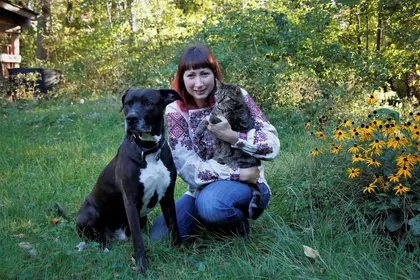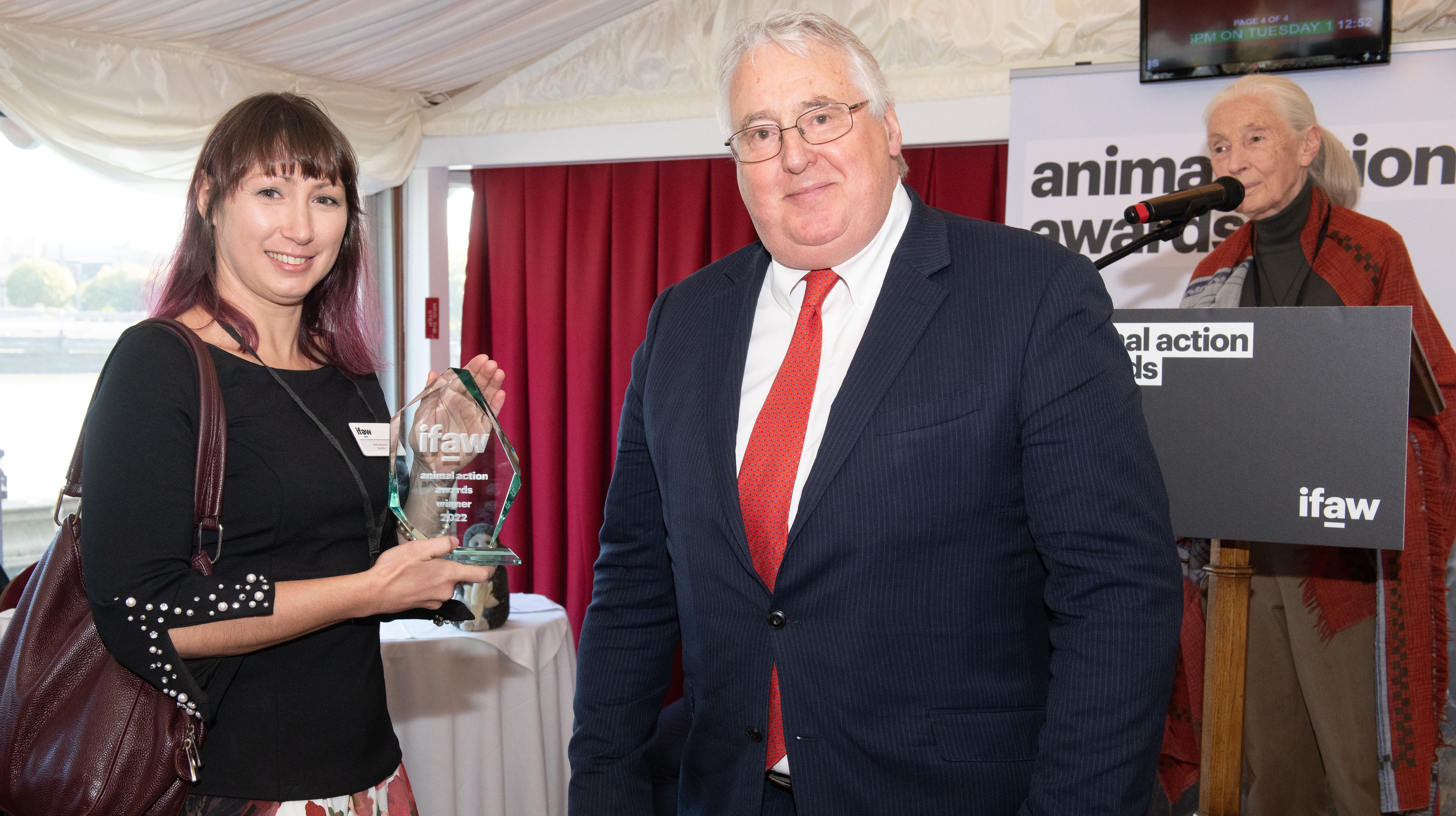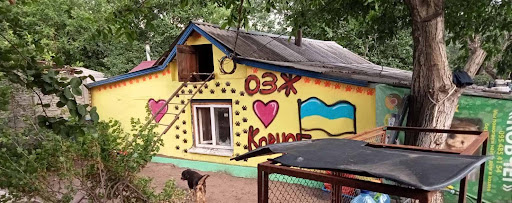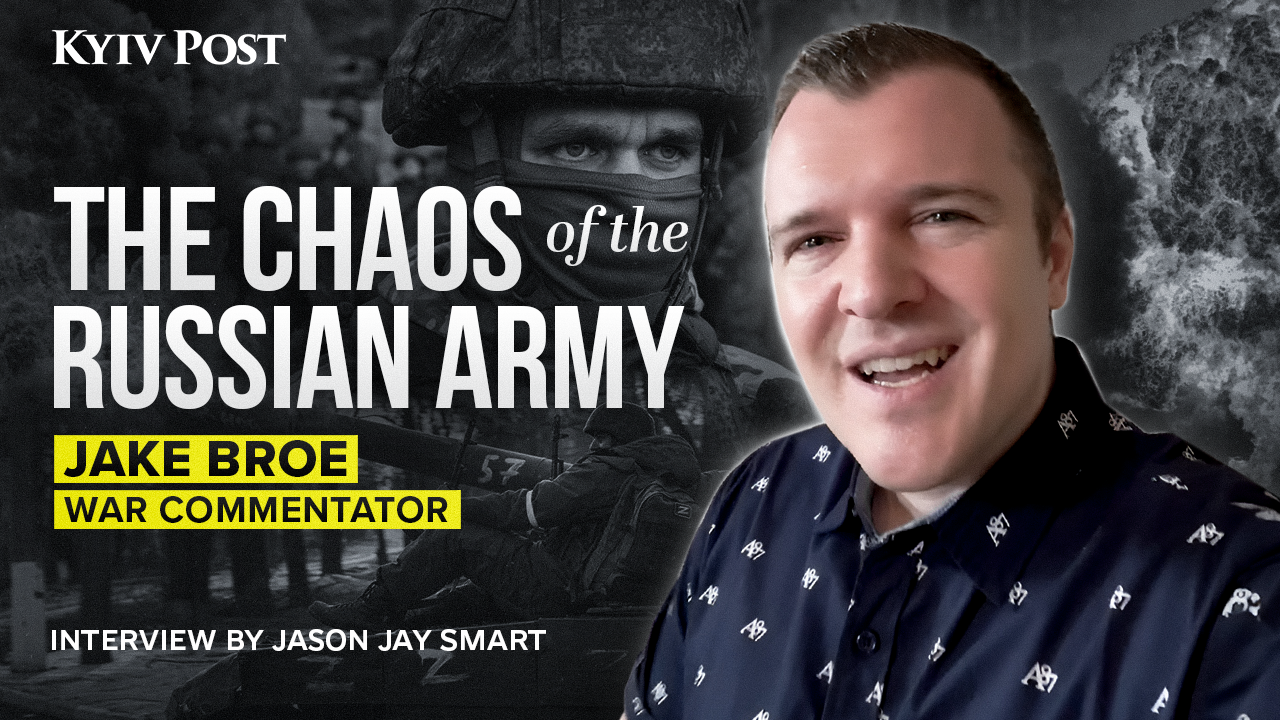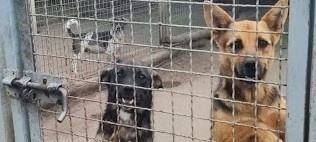Marina Bayeva, a woman described as “a true defender of her people and animals”, has been recognised with a special award by the International Fund for Animal Welfare (IFAW) at the House of Lords in London.
The international award was presented to the Ukrainian on Oct. 18, for her work in helping animal rescue centres in war-torn Ukraine. James Sawyer, UK Director of IFAW, a non-profit global organisation that rescues, rehabilitates and releases animals, said: “The situation in Ukraine is tragic for people and animals. But despite the terror, Marina found a way to overcome the feeling of helplessness and do something extremely positive.
JOIN US ON TELEGRAM
Follow our coverage of the war on the @Kyivpost_official.
“She is a true defender of Ukraine, people and animals and is a worthy laureate of the International Emergency Response Award.”
Speaking after receiving her award from IFAW, which works with 40 countries, Marina Bayeva said: “I was extremely surprised to find out about the nomination and the award.
“I haven’t thought of my work of helping animals in Ukraine to be anything award-worthy. I was simply taking it day by day, looking out for new opportunities to raise awareness about the animal crisis in Ukraine, and fundraising for animal shelters there. My efforts felt really small compared to the enormity of the problem.”
Marina, who hails from Dnipro, and now living in Massachusetts, U.S., and working as a psychiatrist and psychotherapist at the Austen Riggs Center in Stockbridge, initially got involved in helping her parents, still living in Ukraine, with food and medicines, when Putin launched his full-scale invasion.
However, her attention turned to problems being faced in animal shelters where her mother was working as a volunteer in Dnipropetrovsk Region, eastern Ukraine.
Due to language barriers, many shelters were unable to apply for assistance. Marina, who is fluent in English, and has a MD and PhD from Northwestern University, turned to NGOs for help and began working with numerous shelters to find out their needs. When help was necessary at the Polish-Ukrainian border, thanks to a professional network, Marina was able to find students who helped the translators while crossing the border.
As Dnipro became a hub for Ukrainian refugees travelling the country, many left their pets behind. There was a need to expand activities to raise funds for the sterilisation of cats and dogs, build new enclosures to accommodate homeless animals rescued from conflict zones, and finding food for them. Many animals were given for adoption to locals or to people outside the country. Some of the animals were also sent to Poland, France and the Czech Republic for treatment.
Marina has worked directly with seven local shelters, gathering information and helping them fill out grant applications. She has so far raised close to $30,000 dollars through her own efforts.
When the public donate on her website, they can give money to specific shelters of their choice. This includes the Homeless Little One shelter which cares for around 70 strays and abandoned animals, or the We Stand for the Right to Live shelter, which accepts animals with complex medical problems.
Marina, who has rescue pets herself – a seven-year-old dog called Henry and four cats, Herman, Tyson, Oscar and Oreo, said: “The crisis in Ukraine is far from over, and after eight long months people are tired, but life continues in rescue centers.
“The workers and volunteers stay to care for the animals that desperately need them, despite the threat of bombing and destruction moving closer and closer.
“And with winter approaching, this will be the next big challenge. Many of the animals being brought in now are very sick and have serious medical needs, meaning they need extra care.”
Marina keeps those who donate informed where their money is going and how their generosity is helping through a monthly newsletter. One cat from Severodonetsk, Luhansk Region, was brought to the Kovcheh (The Ark) Shelter. It had been locked in an apartment for more than a month.
The emaciated cat was suffering from severe metabolic derangements, but she survived and has since had her own family. The shelter has also been taking animals from newly-liberated towns like Bakhmut, Donetsk Region.
Another shelter featured in the June 2022 newsletter focused on the Sotnitskoe shelter, which was able to rebuild its broken stove after receiving donations. More than 250 animals will now have warm and nutritious meals to eat every day. However, the next project is to urgently repair the kitchen roof.
Olha, who runs the shelter, has to drive 75 miles to a clinic to get acute veterinary care for some of her long-term residents. She said: “I can’t just watch and do nothing. I will be doing all I can to fight for their lives till the very end.”
Another story which captured many hearts was of an elderly dog called Krym, named after Crimea, the place he was rescued from. After a missile attack destroyed the house in Dnipro at the end of September, Krym was found by first responders on top of his ruined home howling for his family buried under the rubble, all of whom were killed in the attack.
Donations have come from many quarters. These have included the Society for the Care of Animals in Poland. They gave two tons of animal food to be distributed right across Ukraine.
Marina has also managed to get emergency relief grants from the International Fund for Animal Welfare for several animal shelters. This, she hopes, will help them get through the winter.
Despite receiving her award, Marina praised the many other volunteers and added: “The people who work in the centers are unsung heroes, because their work may not be full of glory, but they are dedicated and consistent. They come to work day in and day out, often doing everyday tasks like feeding, cleaning and caring for the animals, all of which are just as important.”
As well as urging people to donate, Marina also encourages the public to drop an email with anything they wish to say, plus a photo or two if they like. She believes such messages of support help staff to get through the day and feel that they are not alone in their work.
Marina’s fundraising website is called Help Animals Survive the War in Ukraine, and can be found at: https://givebutter.com/wtSBYy
You can also highlight the text and press Ctrl + Enter


